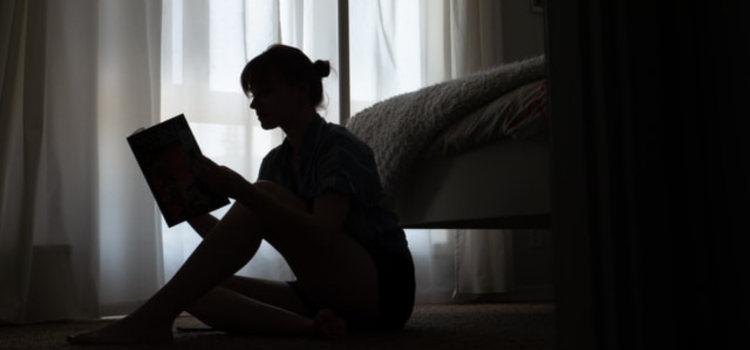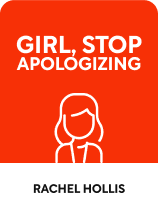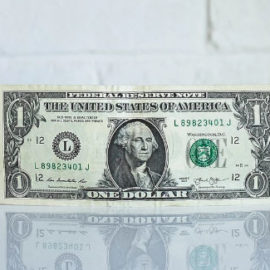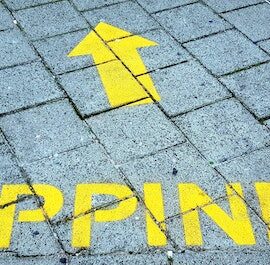

This article is an excerpt from the Shortform book guide to "Girl, Stop Apologizing" by Rachel Hollis. Shortform has the world's best summaries and analyses of books you should be reading.
Like this article? Sign up for a free trial here .
Are you thinking of reading Rachel Hollis’s book Girl, Stop Apologizing? Does the book live up to all of the hype?
In her book Girl, Stop Apologizing, Hollis takes you one by one through all of the excuses that are holding you back. She lists the behaviors that you must be willing to change in order to succeed, and the skills that will help you along the way.
Continue for our Girl, Stop Apologizing review.
Shortform Introduction
Our Girl, Stop Apologizing review begins with a brief overview of the book. Girl, Stop Apologizing is a call to action—Rachel Hollis wants you to stop apologizing for wanting more out of your life. Society expects women to take care of everyone else but looks down upon the woman who prioritizes herself. This book is a guide to overcoming the guilt, shame, and fear of failure that women face whenever they dare to dream big.
About the Author
Rachel Hollis is an author, motivational speaker, and founder of The Hollis Company. Her debut self-help book Girl, Wash Your Face spent more than 46 straight weeks on The New York Times bestseller list and has sold over 4.5 million copies to date. Hollis has since written two more self-help books: Girl, Stop Apologizing (a 2019 follow-up to her famous debut) and Didn’t See That Coming in 2020.
Before she was an author and businesswoman, Hollis was an event planner and a food blogger. She grew up in a rural California town in a lower-income family and always dreamed of having a glamorous and abundant life. After graduating high school, Hollis moved to Los Angeles to pursue an acting career in Hollywood. She found herself working for production companies instead, which led to celebrity event planning. For about a decade, Hollis ran her own event planning business before transitioning into blogging and book writing.
Hollis connects with her audience by using casual language, personal anecdotes, and tales of failure and triumph. She is a divorced mother of four children and she uses her successes and challenges at home for context in her writing. Hollis reminds her readers frequently that she is an ordinary person accomplishing extraordinary things, and they can too.
Hollis’s work is primarily centered around female empowerment with a rags-to-riches backdrop.
Hollis’s Other Self-Help Books Include:
- Girl, Wash Your Face (2018)
- Didn’t See That Coming (2020)
She has also written four novels and two cookbooks.
Connect with Rachel Hollis:
The Book’s Publication
Publisher: HarperCollins Leadership, an imprint of HarperCollins Focus, LLC
Published in March of 2019, Girl, Stop Apologizing is the sequel to Hollis’s New York Times bestseller Girl, Wash Your Face. In Hollis’s words, the first book inspires her readers to take ownership of their lives and their dreams, and this book teaches them how to do that.
Historical Context
Girl, Stop Apologizing came out in March of 2019 amidst a major cultural shift in the U.S. During this time, women’s marches were happening all over the country in protest of sexual violence and discrimination—most notably as part of the Me Too Movement. Female empowerment and the highlighting of women’s voices serve as the backdrop to the release of this book, in which Hollis encourages women to fight patriarchal expectations and pursue their dreams.
The timing of the female empowerment movement and her book release worked in Hollis’s favor. However, at the same time in the U.S., cultural and racial minorities were rising up in protest of inequalities, and a rags-to-riches story coming from Hollis (a white woman) was not well received by marginalized groups.
Intellectual Context
According to Hollis’s citations at the end of her book, she pulls some of her ideas about shame and guilt from Brené Brown’s TED Talk, “Listening to Shame,” and advice about efficiency from Gary Keller’s book, The One Thing. Although she doesn’t cite them, her advice echoes other works, such as The Miracle Morning by Hal Elrod (regarding morning routine), as well as several other ideas from her contemporaries.
The Book’s Impact
This book (in combination with Girl, Wash Your Face) sparked a cultural debate about “toxic positivity” and “bootstrap mentality”—two themes that get strong emphasis in Hollis’s works. Hollis’s position that “if you believe in yourself and work hard enough, you can do anything,” resonates with many people and draws ire in others, particularly as it relates to racial and cultural inequalities.
Critical Reception
Girl, Stop Apologizing was a Publishers Weekly #1 bestseller. Many praise Hollis for writing a book that is easy to read and understand, as opposed to the overly intellectual and lecturing tone of other self-help books. Readers enjoy Rachel’s casual voice and feel as if they are receiving advice from a friend. Positive reviewers claim that the book is highly motivational and gave them the push they needed to start on their dream.
However, some criticize the book for having too many personal stories and not enough practical advice. A common complaint among her detractors is that she recycled advice from her previous book, Girl, Wash Your Face. Some even go so far as to say that she plagiarized guidance from other motivational speakers.
While most Amazon and GoodReads reviews are positive, some criticize specific sections of the book as being tone-deaf—specifically in regard to body image and eating habits.
Commentary on the Book’s Approach
Hollis approaches this book in the same way she speaks: casually and conversationally, but with an energetic fervor. She fluctuates between self-deprecating humor and seriousness, often poking fun at her past self while praising her current self. Hollis uses personal anecdotes to illustrate her points, and this book is part-memoir because of it.
In this book, Hollis refers to herself often as “your friend Rachel” and depicts herself as the buddy who is willing to give you tough love. In terms of content, she focuses on the themes of hard work, self-reflection, and positivity.
Hollis’s approach isn’t for everyone; some will find her tone judgmental and others might balk at the heavy use of exclamation points. However, others may find her demeanor down to earth, approachable, and easy to digest. In part because Hollis did not attend college or come from a wealthy family, her “everywoman” advice is readily received by a general audience.

———End of Preview———
Like what you just read? Read the rest of the world's best book summary and analysis of Rachel Hollis's "Girl, Stop Apologizing" at Shortform .
Here's what you'll find in our full Girl, Stop Apologizing summary :
- Rachel Hollis's lessons she learned while building a multimillion-dollar company
- Why "having it all" isn't something you should aspire to
- Why women need to stop trying to fit society's idea of a "good woman"






